The Liturgical Calendar of the Church of England in 2025
Related Articles: The Liturgical Calendar of the Church of England in 2025
- Calendario 2025 Imprimir: A Comprehensive Guide To Printable Calendars
- 2025 Vector Calendar: A Comprehensive Guide To Design And Customization
- F Calendar 2025: A Comprehensive Guide
- 2025 Ontario Holiday Calendar: A Comprehensive Guide
- January 2025 Calendar With Holidays Singapore
Introduction
In this auspicious occasion, we are delighted to delve into the intriguing topic related to The Liturgical Calendar of the Church of England in 2025. Let’s weave interesting information and offer fresh perspectives to the readers.
Table of Content
Video about The Liturgical Calendar of the Church of England in 2025
The Liturgical Calendar of the Church of England in 2025
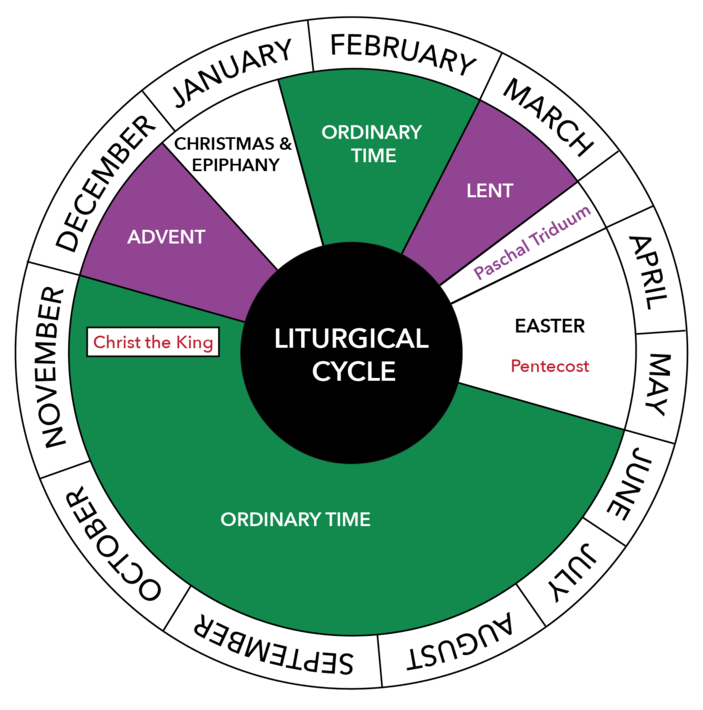
The liturgical calendar is a yearly cycle of observances that commemorates the major events in the life of Jesus Christ and the history of the Church. It also includes feasts of saints, martyrs, and other holy men and women. The liturgical calendar is used by Christians to order their worship and to deepen their understanding of the faith.
The Church of England’s liturgical calendar is based on the traditional Western Christian calendar, which was developed in the early centuries of the Church. The calendar has been revised several times over the centuries, most recently in 1970. The current calendar is a compromise between the traditional calendar and the modern calendar, which is used by most secular societies.
The liturgical calendar is divided into two main seasons: the Season of the Nativity and the Season of the Pentecost. The Season of the Nativity begins on Advent Sunday and ends on the Feast of the Epiphany. The Season of the Pentecost begins on Easter Sunday and ends on the Feast of Pentecost.
The Season of the Nativity celebrates the birth of Jesus Christ. The season includes the feasts of Christmas, Epiphany, and the Presentation of Christ in the Temple.
The Season of the Pentecost celebrates the coming of the Holy Spirit upon the apostles. The season includes the feasts of Easter, Ascension, and Pentecost.
In addition to the two main seasons, the liturgical calendar also includes several other seasons and festivals. These include the Season of Epiphany, the Season of Lent, the Season of Easter, the Season of Ascension, and the Season of Pentecost.
The Season of Epiphany begins on the Feast of the Epiphany and ends on the Feast of the Presentation of Christ in the Temple. The season celebrates the manifestation of Jesus Christ to the world.
The Season of Lent begins on Ash Wednesday and ends on Maundy Thursday. The season is a time of preparation for Easter.
The Season of Easter begins on Easter Sunday and ends on the Feast of Pentecost. The season celebrates the resurrection of Jesus Christ.
The Season of Ascension begins on the Feast of Ascension and ends on the Feast of Pentecost. The season celebrates the ascension of Jesus Christ into heaven.
The Season of Pentecost begins on the Feast of Pentecost and ends on the Feast of Trinity Sunday. The season celebrates the coming of the Holy Spirit upon the apostles.
The liturgical calendar is a rich and varied resource for Christian worship. It provides a framework for the celebration of the major events in the life of Jesus Christ and the history of the Church. The calendar can also be used to deepen our understanding of the faith and to grow in our relationship with God.
Here is a table of the major feasts and observances in the Church of England’s liturgical calendar for 2025:
| Date | Feast or Observance |
|---|---|
| December 28 | Feast of the Holy Innocents |
| December 31 | New Year’s Eve |
| January 1 | New Year’s Day |
| January 6 | Feast of the Epiphany |
| January 25 | Conversion of St. Paul |
| February 2 | Presentation of Christ in the Temple |
| February 14 | Ash Wednesday |
| February 23 | Feast of St. Matthias |
| March 8 | Feast of St. David |
| March 19 | Feast of St. Joseph |
| March 25 | Annunciation of the Lord |
| March 29 | Maundy Thursday |
| March 30 | Good Friday |
| March 31 | Holy Saturday |
| April 1 | Easter Sunday |
| April 2 | Easter Monday |
| April 23 | Feast of St. George |
| May 1 | Feast of St. Philip and St. James |
| May 25 | Ascension Day |
| May 26 | Feast of St. Augustine of Canterbury |
| May 29 | Pentecost Sunday |
| May 30 | Pentecost Monday |
| June 1 | Feast of the Holy Trinity |
| June 24 | Feast of the Nativity of St. John the Baptist |
| June 29 | Feast of St. Peter and St. Paul |
| July 25 | Feast of St. James |
| August 6 | Feast of the Transfiguration |
| August 15 | Assumption of the Blessed Virgin Mary |
| September 8 | Feast of the Nativity of the Blessed Virgin Mary |
| September 21 | Feast of St. Matthew |
| September 29 | Feast of St. Michael and All Angels |
| October 18 | Feast of St. Luke |
| October 31 | Reformation Day |
| November 1 | Feast of All Saints |
| November 30 | Feast of St. Andrew |
| December 8 | Feast of the Immaculate Conception |
| December 24 | Christmas Eve |
| December 25 | Christmas Day |
| December 26 | Feast of St. Stephen |
| December 27 | Feast of St. John the Evangelist |
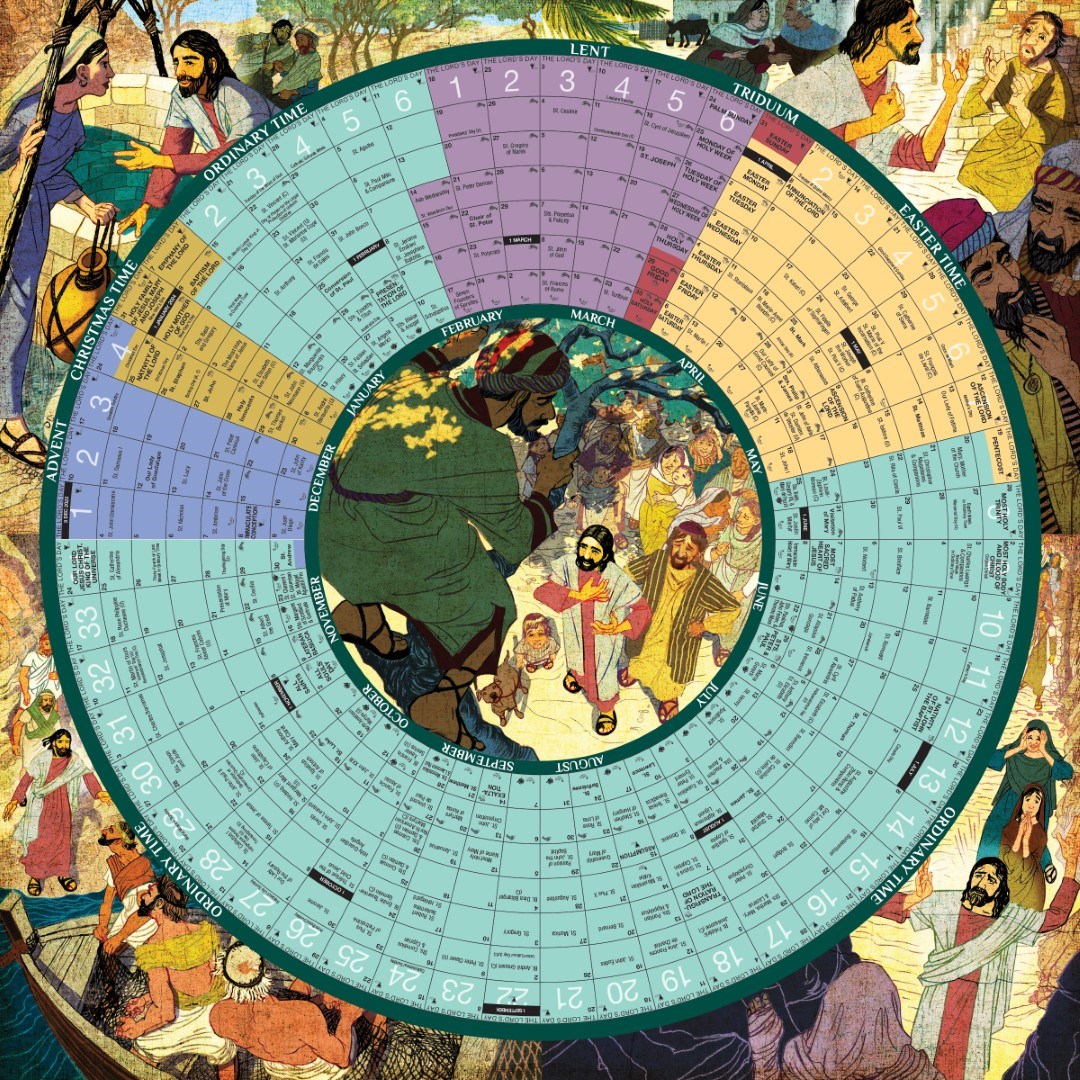

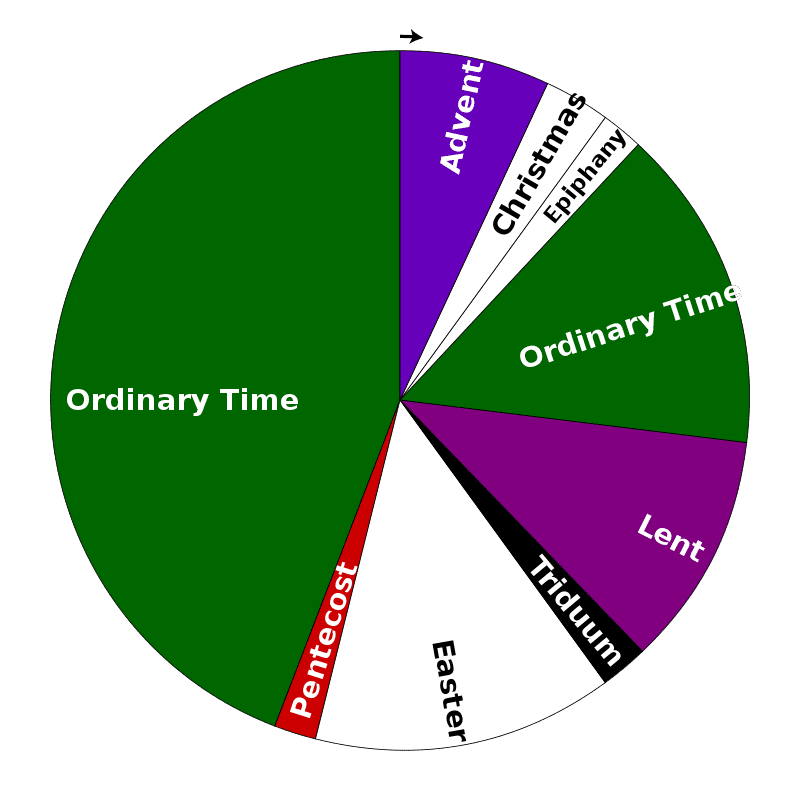
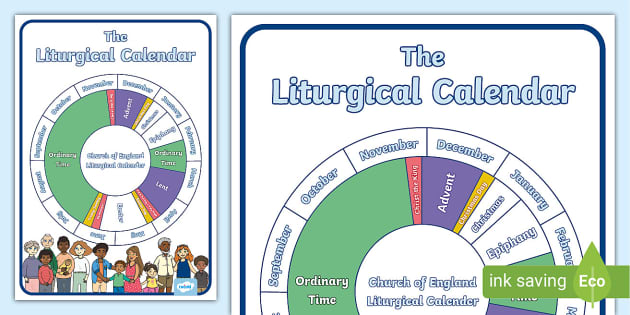

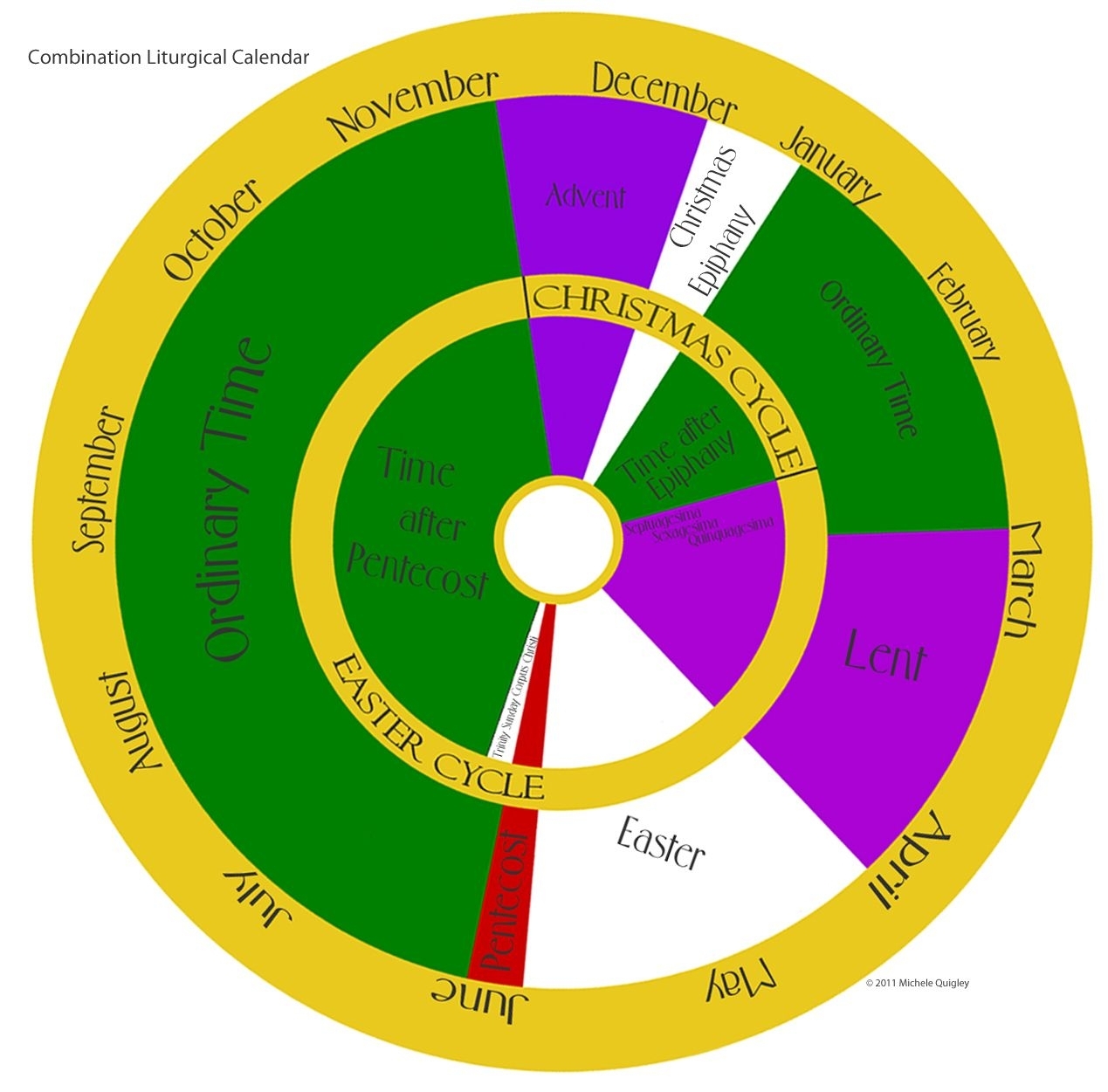
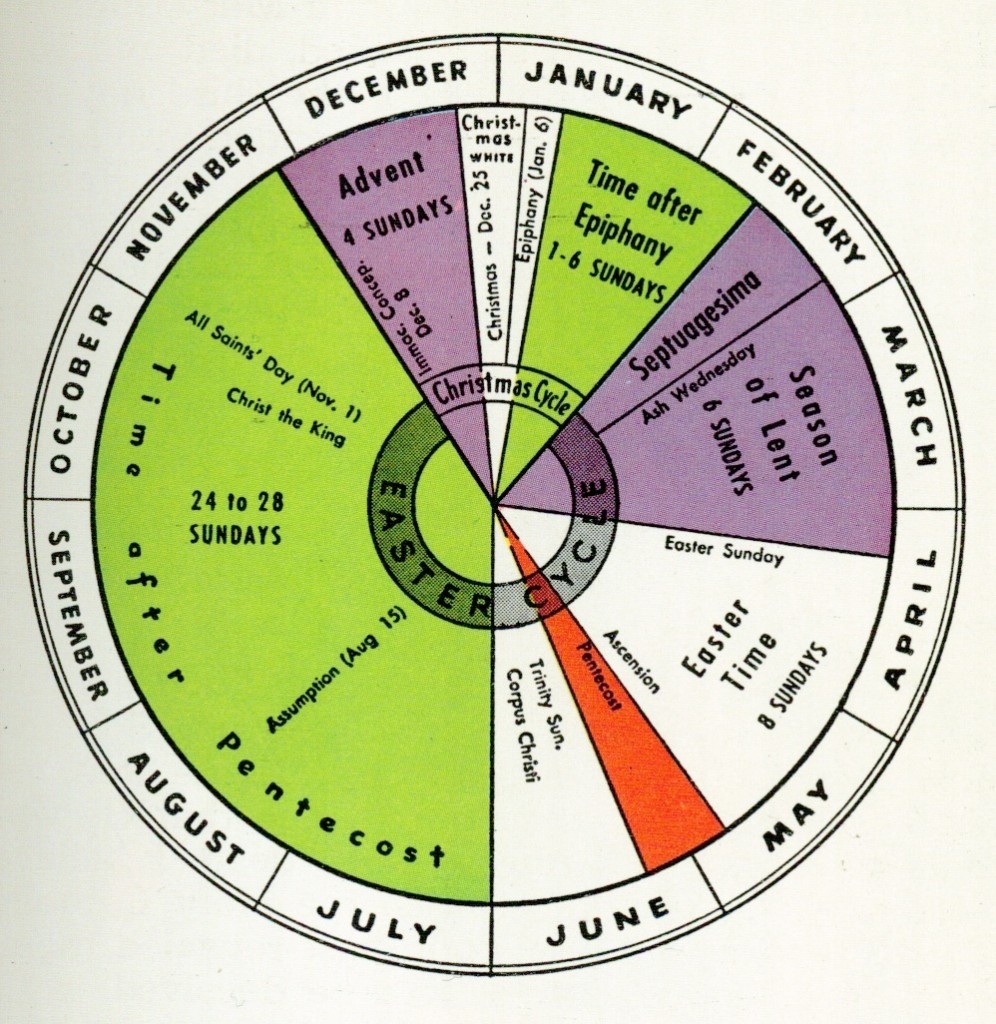

Closure
Thus, we hope this article has provided valuable insights into The Liturgical Calendar of the Church of England in 2025. We appreciate your attention to our article. See you in our next article!